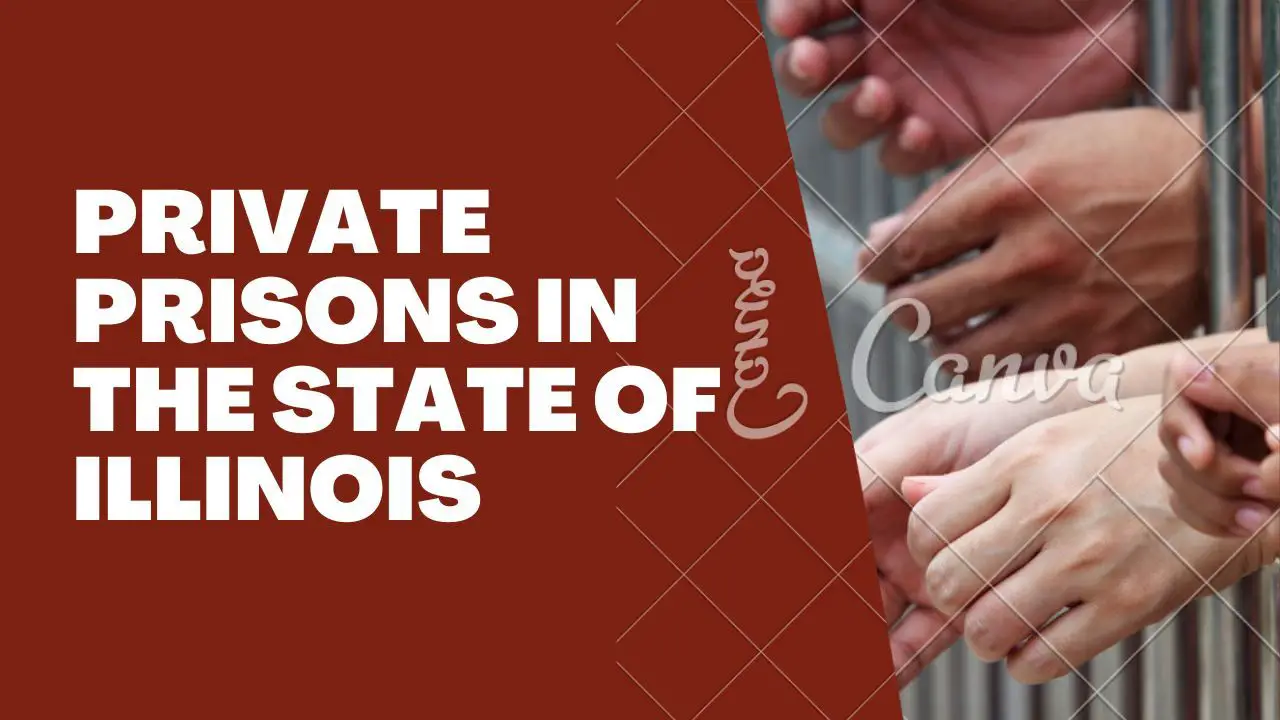Private Prisons In The State Of Illinois
This article brings you a list of private prisons in the state of Illinois with all the important details.

As of 2023, Illinois has no functioning private prisons. It has long been a policy of the Illinois Department of Corrections (IDOC) not to enter into contracts with private prison businesses. This policy was established in 1990 and has subsequently been extended multiple times.
The IDOC's choice to forgo using private prisons is motivated by a variety of considerations, such as worries about the security and safety of inmates, the standard of inmate care, and the expense of running private prisons. Additionally, concern among the general public over the usage of private prisons has grown in recent years.
Furthermore, private prisons are criticized because they are more hazardous, overcrowded, and have worse standards of care than state prisons. They also contend that profiteering at the cost of convicts may result from using private prisons.
In keeping with the trend of states avoiding private prisons, the IDOC decided not to employ them. Several states have also terminated their agreements with private prison businesses in recent years.
Read A List of Private Prisons in The State of Missouri
Major Reasons Behind Illinois Lack Of Private Prison
Opposition From General Public
The public is becoming more aware of the issues connected with private prisons, such as a lack of monitoring and the possibility of profit-driven incentives to jeopardize public safety.
Because of this public hostility, private prison businesses have found it difficult to operate in Illinois.
Lack Of Medical Staff
There is a lack of nearly half of the medical staff in Illinois prisons. According to a court-appointed monitor, there’s a major shortage of staff, having 46% of medical positions being vacant.
Legislative Prohibition
The Illinois legislature approved legislation prohibiting the establishment or operation of private prisons in the state in 1990.
Concerns about the quality of treatment and oversight in private prisons, as well as the possibility of profit-driven incentives to endanger public safety, prompted the legislation.
Read Full List of Private Prisons in the State of New Hampshire
Illinois Prison Crisis
The state of Illinois has been facing a prison crisis for so long due to myriad problems. Gang-infested neighborhoods, mindless violence, and sentencing policies that lock up young criminals for lengthy periods are among these problems. These issues add to Illinois's prison overcrowding situation.
Since street gangs encourage and maintain the criminogenic nature of urban and prison life, many of the issues facing the prison system may be linked to the prevalence of gangs both outside and inside of prisons. Drugs and drug-related crimes also contribute to the criminal underworld and overcrowding in jails and prisons.
More than 40,000 inmates are housed in Illinois jails, which were originally intended to hold 32,000. Even though Illinois spends more than $1.4 billion annually on prisons, almost half of formerly jailed individuals do so within three years. The explanations are obvious: overuse of punitive measures.
sentencing, underfunding of recidivism-reduction programs, underinvestment in community education and job opportunities, and sentence
Causes Behind The Crisis
There are various causes behind Illinois’s failing prison system. However, the most prominent among them are overcrowded prisons, deteriorating infrastructure, lack of correctional officers, and inadequate financial resources.
Overcrowded Prisons
Illinois' prisons are dangerously overcrowded presently as a result of years of steady prison population growth in the state. The IDOC can house 33,000 prisoners as of 2023.
However, there are now 38,259 detainees there. The resources of the prison system are strained by this congestion, which also raises questions about safety and security.
Deteriorated Infrastructure
The prison system in Illinois is deteriorating. Many of the institutions in the state require renovation or replacement.
The outdated infrastructure might make it difficult to deliver proper healthcare and other services to convicts. Moreover, it poses safety threats for both personnel and inmates.
Lack Of Correctional Officers
Correctional officers are in low supply in Illinois’s prisons, which is a problem for the Illinois Department of Corrections.
Because of the lack, it is challenging to keep the jails in order, and violence may escalate.
Inadequate Financial Resources
Insufficient money makes it difficult to give convicts the services they need since the Illinois prison system is underfunded.
Problems with healthcare, education, and other crucial programs for rehabilitation may result from this lack of financing.
Effects Of The Prison Crisis
Heightened Violence
Increased violence can be attributed to several factors, including overcrowding, deteriorating facilities, and a lack of correctional guards.
The risk posed by this violence to inmates and employees makes it challenging to deliver rehabilitative programs.
Increased Costs
The cost of running the Illinois prison system is relatively high. The state spends billions of dollars annually on jails, and as the prison population rises, this expense is expected to keep growing.
Adverse Effects On Communities
The towns where prisons are located suffer as a result of the Illinois prison system. Due to the prison's existence, these areas frequently see an upsurge in crime and violence as well as possible economic difficulties.
